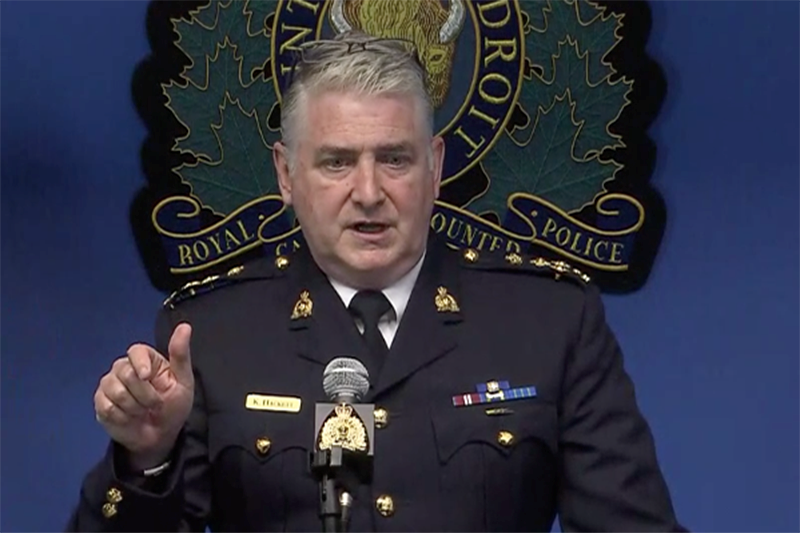B.C. RCMP said they believe Kam McLeod shot and killed Bryer Schmegelsky in the Northern Manitoba wilderness before turning the gun on himself, ending a three-week crime spree and manhunt that began in northern B.C. with three random kilings.
Rifles found near McLeod and Schmegelsky’s bodies, which were discovered by Manitoba RCMP Aug. 7, though they may have died several days earlier, were the same ones used to kill Australian Lucas Fowler, American Chynna Deese and B.C. resident Leonard Dyck, police said at a Sept. 27 press conference.
The search for McLeod and Schmegelsky began when a vehicle belonging to 64-year-old Leonard Dyck, who was killed in northern B.C., was found abandoned and burning near Fox Lake Cree Nation July 22.
McLeod and Shmegelsky were charged with murder in Dyck’s death and were also suspects in the killings of 23-year-old Fowler and 24-year-old Deese, also in northern B.C.
Along with Dyck’s vehicle, which the two killers from Port Alberni stole after murdering him, they also took his digital camera, on which police found six videos and three photos. In the videos, McLeod and Schmegelsky took responsibility for all three murders and displayed no remorse.
“They were cold, they were remorseless, matter of fact,” said B.C. RCMP Assistant Commissioner Kevin Hackett. “McLeod and Schmegelsky targeted Lucas Fowler and Chynna Deese for unknown reasons. They shot and killed the couple before continuing up to the Yukon. There’s no real clear understanding of why they were ultimately chosen, if that’s the word, or targeted or became the victims other than they were at the side of the roadway. They were in a position that made them likely more vulnerable than others because they were pulled off the highway.”
After returning from the Yukon to B.C. because they were having car trouble, Mcleod and Schmegelsky came across Dyck, killed him, burned their truck and stole his vehicle.
“There was a marked difference in the amount of violence that was used in the Fowler/Deese homicides and then the subsequent killing of Mr. Dyck,” said Hackett, who credited the search effort by Manitoba RCMP for making McLeod and Schmegelsky feel as if they couldn’t escape. “I think it speaks to the work that was done to saturate the area around Gillam with police dog, aircraft, armed police officers trained in searching for subjects like this.”
Their bodies were found in an area with the Nelson River on one side and a steep embankment on the other.
“They could not escape, cross, swim,” Hackett said. “They were able to traverse down but could not get back up.”
The RCMP decided not to release the videos that McLeod and Schmegelsky recorded out of respect for the victim’s families and because they don't want to inspire similar crimes.
“The videos may influence or inspire other individuals to carry out a targeted act of violence, essentially creating copycats,” said Hackett. “It is believed the suspects may have made the video recordings for notoriety.”




